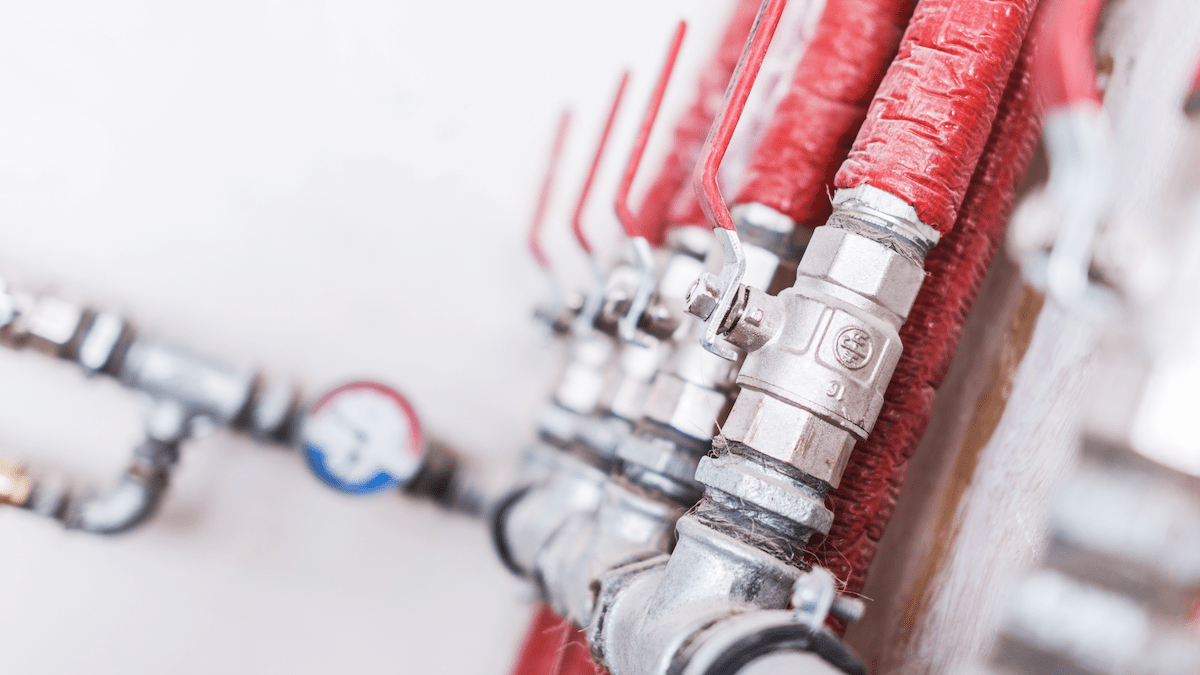Did you know that there are different types of gas piping?
For safe and effective gas piping installation, the right materials must be used, otherwise, you could be putting yourself and your property at risk of gas leaks.
Here’s an overview of the different types of gas piping and some pros and cons of each. The use of certain kinds of materials may be prohibited by some utilities. If you’re looking for gas pipe installation for your next Arizona project, please don’t hesitate to contact us with any questions you might have.
4 Types of Gas Piping
The most common gas piping materials include polyethylene (PE), steel, black iron, and copper. A professional gas piping contractor can help you understand which materials are ideal for your property.
Polyethylene (PE)
Polyethylene (PE) piping, a mixture of polymers and ethylene, comes in different grades, with the most commonly used one for gas piping being high-density polyethylene (HDPE).
This material tends to be light, weather-resistant, can resist high-pressure levels, and is affordable and easy to transport. As a common substitute for steel and concrete, they are impervious and strong. They’re often the best choice for gas lines and other usages like drainage and sewer systems.
Generally, PE is flexible and easily coiled onto truck beds for transport. The ease of use and installation are key reasons it’s taken the place of steel pipes in most scenarios. Where steel pipes have joints, PE pipe is just one single flexible unit. It does not corrode or get easily damaged.
HDPE, in particular, is exceptionally strong, even more resistant than other grades of PE.
Steel Piping
The type of steel piping typically used for indoor gas piping is flexible corrugated stainless steel tubing. Steel piping is energy-efficient, stable, and durable. Though you can use this type of pipe for exterior uses, it’s typically not recommended. One drawback to using steel is that it’s quite labor-intensive.
Another option for gas piping is bonded steel pipe, but this would require far too much labor than necessary for most home DIY piping jobs.
Black Iron
Black iron is often used for gas piping. It is exceptionally strong and can be formed to make leakproof seals. One drawback is that it is corrosive. If you have black iron piping, be sure to get a gas piping professional to check for corrosion and stay safe from gas leaks.
Copper
Copper is not as widely used for gas piping as it has been in the past. It lasts about 20 years, and both costs and usage restrictions can vary.
Costs of Gas Piping
Gas piping installation costs vary based on piping material, labor, transport, other materials and equipment required for installation, and permitting fees. If a home property installation is complex or the contractor runs into unexpected problems, the price can move upwards of $1000.
If you have added new gas appliances to your home or are planning on it, you may need to have new pipelines installed. The project’s cost will depend on whether or not there are existing gas lines on your property.
Don’t risk skipping on cost thought and risking safety. Any type of gas pipe plumbing or gas fire feature needs to meet the highest standards for safety.
These jobs require a lot of time and skill so that they can be a bit of an investment, but homeowners will start seeing a serious return on investment as soon as they start using their gas appliances. If you’re in the Phoenix area, simply fill out our installation form with the details of your project, and we’ll be glad to get back to you as soon as possible.
Natural Gas Contractors In Arizona
Looking for information about gas pipe installation, repairs, inspections, or metering? A natural gas contractor should be able to provide you with a detailed overview of what’s needed, including the type of gas piping suitable for your project, the length of time the project will take, and a realistic estimate.
The written quote should include:
- Price for the initial install
- Material costs
- Labor costs
- Permits and permit fees
- Subcontractor costs
- Warranty and service details
- Estimated date of completion
- Piping layout diagram
- Estimate of future work
- Tax rebates and exemptions
- Inspections and maintenance
The Arizona Registrar of Contractors (AROC) maintains a list of all qualified gas plumbing companies.
Get a professional who understands local regulations and requirements with licensing, materials, and inspections.
We only use the highest quality products and hire skilled, licensed tradespeople. Our commitment to quality shows in every detail.
If you have questions about installation, repairs, maintenance, or anything else, don’t hesitate to contact us—we’re happy to help!


